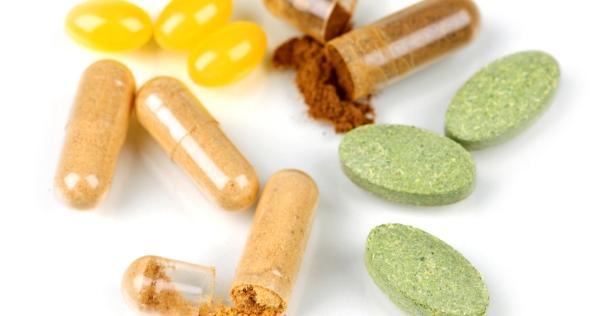Herbal Supplements Often Contain Unlisted Ingredients

People who consume herbal products such as supplements may be getting more, or less, than they bargained for. Many of these products contain ingredients not listed on the label, a new study finds.
In the study, nearly 60 percent of herbal products tested contained plant substances not listed on the label. In nearly a third of products, the main ingredient was substituted with a different product. More than 20 percent of products contained fillers such as rice, wheat and soybeans, in addition to the main ingredient.
Overall, out of the 12 companies that produce herbal supplements included in the study, just two had products with no substitutions, fillers or contaminants, the researchers said. [5 Key Nutrients Women Need As They Age]
Such unlisted ingredients may pose health hazards for consumers, the researchers said. For example, one produced was labeled as St. John's wort, but actually contained the laxative plant Senna alexandrina. The laxative is not recommended for long turn use, and can cause serious side effects, such as chronic diarrhea and liver damage.
Other products contaminated with walnut leaves, wheat, soybeans and rice might pose problems for people with allergies or those seeking gluten-free products, said study researcher Steven Newmaster, an integrative biology professor and botanical director of the University of Guelph's Biodiversity Institute of Ontario.
"A consumer has a right to see all of the plant species used in producing a natural product on the list of ingredients," Newmaster said.
The researchers analyzed 44 herbal products sold in the United States and Canada, using a gene sequencing technique called DNA barcoding to identify the plant species present in the products. (DNA barcodes are short gene sequences that are indicative of a particular species.)
Sign up for the Live Science daily newsletter now
Get the world’s most fascinating discoveries delivered straight to your inbox.
About 50 percent of the products did contain the main ingredient, but around 30 percent of these also contained contaminants or fillers.
In the United States, herbal products are considered dietary supplements, and unlike drugs they do not need approval by the Food and Drug Administration before they come to market. However, the FDA can take action to recall a product if it is found to be unsafe after it hits the market.
The findings of the new study are consistent with earlier work. For example, a 2011 study of 131 herbal tea products found that 33 percent were contaminated. Still, the estimates from the new study should be interpreted with caution, and refined with further research, because the study tested products from just 12 out of the 1,000 companies that make herbal products.
The study was published today (Oct. 11) in the journal BMC Medicine.
Follow Rachael Rettner @RachaelRettner. Follow LiveScience @livescience, Facebook & Google+. Original article on LiveScience.

Rachael is a Live Science contributor, and was a former channel editor and senior writer for Live Science between 2010 and 2022. She has a master's degree in journalism from New York University's Science, Health and Environmental Reporting Program. She also holds a B.S. in molecular biology and an M.S. in biology from the University of California, San Diego. Her work has appeared in Scienceline, The Washington Post and Scientific American.
Scientists built largest brain 'connectome' to date by having a lab mouse watch 'The Matrix' and 'Star Wars'
Archaeologists may have discovered the birthplace of Alexander the Great's grandmother
Elusive neutrinos' mass just got halved — and it could mean physicists are close to solving a major cosmic mystery









